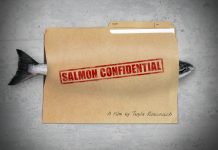Amidst the vast expanse of cornfields in the US lies a silent crisis that reverberates far beyond the fields themselves. “Killing Bees,” a poignant documentary, turns its lens to the heartrending plight of honey bees on the brink of extinction. In a world where their role as environmental sentinels is unparalleled, this film emerges as a rallying cry to save these vital pollinators from the abyss.
The narrative unfolds with a laser focus on the pivotal role honey bees play in our ecosystem. A cornerstone of biodiversity, these tireless pollinators facilitate the growth of countless plants, including vital crops that sustain our food systems. However, as the documentary reveals, a sinister threat looms beneath the seemingly idyllic cornfields—a threat born from the very pesticides designed to protect crops.
An alarming revelation takes center stage as the film delves into the hazardous concoctions that saturate the fields. Pesticides, often laced with neonicotinoids, a chemical death knell for honey bees, create a toxic cocktail that permeates the environment. The consequences are dire—bee populations teeter on the precipice of oblivion, with far-reaching implications that extend beyond their immediate survival.
Central to the documentary’s narrative is the clarion call to action. This film stands as an unwavering advocate for the survival of honey bees, their role resonating far beyond their diminutive size. The urgency of the matter echoes through the words of environmentalists and experts whose voices resonate with conviction. They expose the stark reality that lies before us—an environment robbed of these essential pollinators, leading to a ripple effect that touches every facet of life as we know it.
As the documentary unfolds, it casts a discerning gaze on the response—or lack thereof—from both the government and the industries responsible for the production of these toxic pesticides. The film does not shy away from holding these entities accountable for the imminent catastrophe that looms over honey bees and, by extension, our shared future.
The human cost of this crisis is not overlooked. The narrative takes us into the lives of those whose livelihoods are intrinsically tied to the well-being of honey bees. The disheartening ripple effect of the bees’ decline is seen in the faces of those who find their jobs and traditions unraveling amidst the impending catastrophe.
Yet, amidst the bleakness, “Killing Bees” offers a glimmer of hope—a clarion call for collective action. The documentary serves as a powerful tool to inform, inspire, and mobilize individuals, communities, and governments to stand against this ecological crisis. It compels us to look beyond short-term gains and embrace the responsibility of stewardship over our planet and its intricate web of life.

































